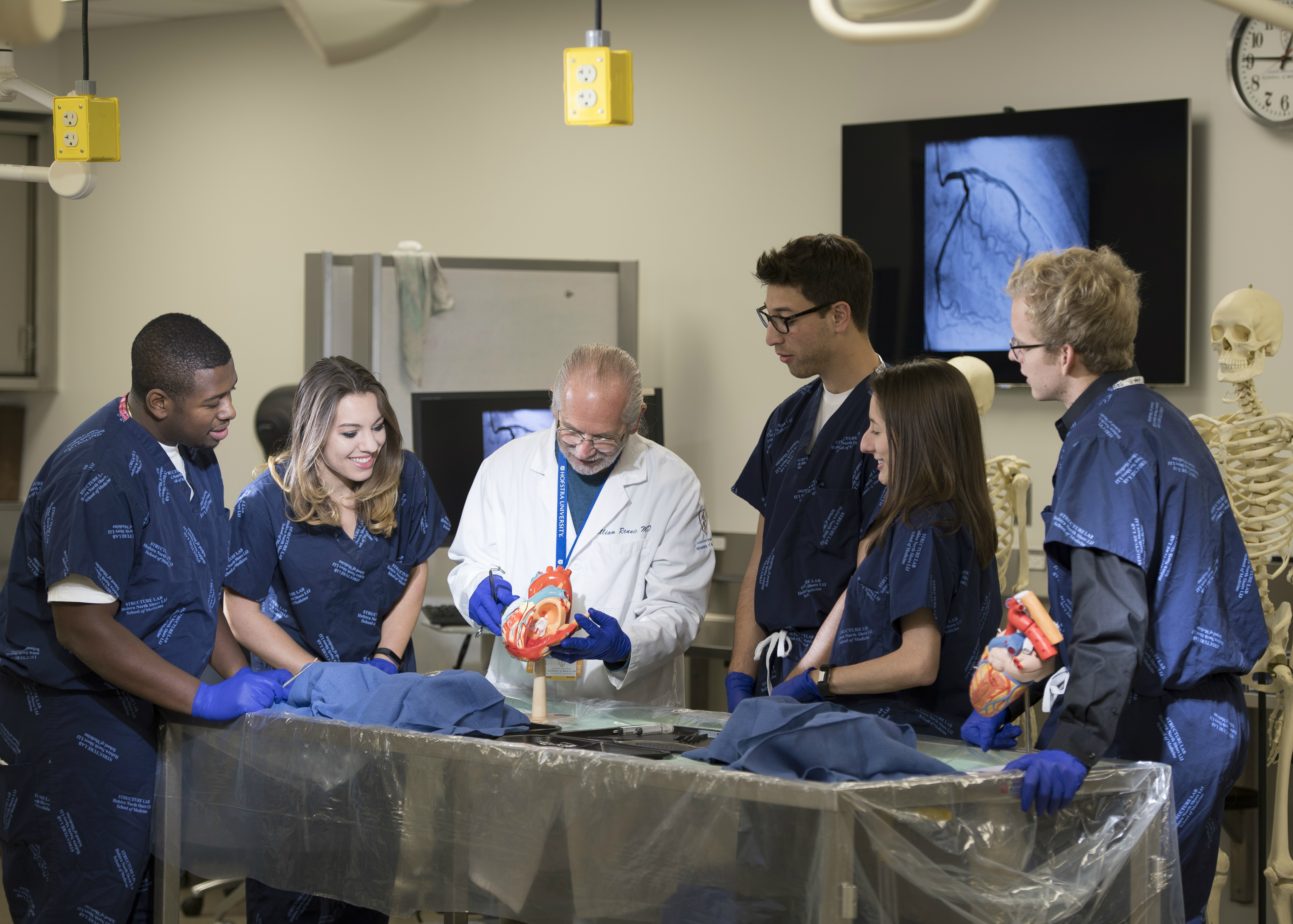It’s the holiday season, which, for many of us, means planning time off with loved ones and exchanging thoughtful gifts, while reflecting on our many blessings. For some of us, however, December means something else altogether: intense, acute, unending stress.
I’m referring to first-year students at the Donald and Barbara Zucker School of Medicine at Hofstra/Northwell, which is part of the health system I’m fortunate enough to run. These days, this fine, brilliant, and diverse bunch of young men and women aren’t shopping online on their phones or a computer. Instead, they’re struggling to understand, say, the hypothalamic-pituitary-adrenal axis and other immensely complex ideas necessary to provide medical care to patients.
They’re incredibly stressed out but they also know how to handle it. All of us who are feeling a little on edge this season—rushing to finish up a project at work before the break, or struggling to find and afford the perfect gifts—should take note. Here are five ways to battle stress and make this time of year merrier.
Ask One Simple Question: “Is Anyone Going to Die?” It may sound macabre, but this tip, courtesy of the medical school’s dean of students, Jodi Langsfeld, is immensely helpful. If you’re stressing out, or see someone who is, ask them that question. They may get a bit a miffed at first, but if they stop to think about it, chances are they’d soon come to appreciate it. Because no matter how daunting we may think our circumstances are, when compared to life-and-death situations—which, thankfully, most of us don’t have to face very often—they acquire the right, healthy perspective. That project at work can wait. It’s okay to get an imperfect gift, or even no gift at all. No one is going to die.
Reward Yourself: If you happen to catch one of our students at a rare moment away from her books, he or she will likely tell you the secret all those tasked with great and daunting endeavors already know: It’s all about the treats. For some, it’s the promise of an hour watching TV mindlessly if and when a certain assignment is completed. For others, it’s a brisk 15-minute walk, or a long bath, or a call to a good friend. Whatever motivates you, make sure you think about it often and reserve it for that happy occasion when you’ve completed your chores. Don’t be stingy with yourselves: We work better when we receive small rewards for small achievements, not when we delay gratification until a massive task is done.
Get Some Sleep: Until not very long ago, all of us, but especially physicians working impossibly long shifts, were told that sleep didn’t matter much. By now, the importance of sleep and its health benefits are sufficiently well known, and yet too many of us find it acceptable to cut back on our hours in bed in favor of a bit more time clearing up our to-do lists. Resist the temptation: The less you sleep, the less likely you are to have the mental and physical acuity necessary to completing any meaningful task.
Resist “Impostor Syndrome”: At one point or another, even the most self-assured among us feel like complete impostors. In medical school, students who are used to being the smartest ones in their college and high school classes are often shocked when they have to work harder than they had ever worked in their lives, and more than a few start to think that maybe they’ve made a terrible mistake. It’s a normal reaction, and the only way to fight it is by reminding yourself that you are more than capable of overcoming any and each obstacle standing in your way.
Have a Support System: Our medical students have each other and their teachers. Who do you have? Without a network of close colleagues who share your joys and frustrations, you’re much more likely to feel isolated and stressed. So even if you’re fortunate enough to have a loving family and a close-knit circle of friends, make sure that your professional life, too, provides you with a group of people with whom you can talk and share your concerns.
Our students may not be doctors quite yet, but by helping us rethink our approach to stress, they’re already helping us heal. To give the rest of us an unprecedented insight into the trials and the triumphs these extraordinary young people are facing as they begin their transformation into MDs, we decided to break with tradition and let a production crew into medical school, recording a candid podcast called “Year One: Making an MD,” which follows these first-year students as they acquire new skills and handle new challenges. When you’d like a minute off of whatever is stressing you out, take a few minutes and listen to their sound advice.
* * *
Michael Dowling is the president and CEO of Northwell Health.


